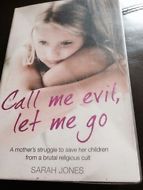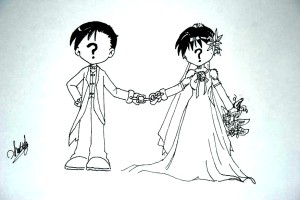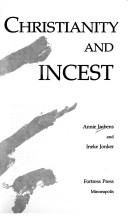 After writing something about the dynamic of marriages at Peniel under Michael Reid, I ordered the book written by Caroline Green, Call me evil, let me go. She was the individual who successfully escaped from Peniel in around 1997 and also obtained a financial settlement from the church a few years later. Harper Collins published her account of her trial and traumas but the edition published in this country has had all the names changed for legal reasons. But it is quite clear that all the events recorded in her book are describing Peniel in the 80s and 90s. There are many things to be noted from the book which appalled me, but one particular theme which hit home was the treatment of very young children at the church. It was in fact witnessing the beating of her children at the school that provided the motivation and stirred the will of Caroline finally to break free. With her four children, it was no easy matter starting a new life outside the cage that represented Peniel Church.
After writing something about the dynamic of marriages at Peniel under Michael Reid, I ordered the book written by Caroline Green, Call me evil, let me go. She was the individual who successfully escaped from Peniel in around 1997 and also obtained a financial settlement from the church a few years later. Harper Collins published her account of her trial and traumas but the edition published in this country has had all the names changed for legal reasons. But it is quite clear that all the events recorded in her book are describing Peniel in the 80s and 90s. There are many things to be noted from the book which appalled me, but one particular theme which hit home was the treatment of very young children at the church. It was in fact witnessing the beating of her children at the school that provided the motivation and stirred the will of Caroline finally to break free. With her four children, it was no easy matter starting a new life outside the cage that represented Peniel Church.
Before we discuss the medieval treatment of children which was the norm at Peniel in the past, (now thankfully deemed to be criminal even in private establishments), I want to draw attention to the way Caroline describes the extraordinary hold that Reid had over those under his power. Described in a detached way, we can glimpse some of his methods through her descriptions. They could be said to be a combining of terror and charm. While a teenager in the church, Caroline was subject to a concerted attack on her self-esteem by Reid and others. Her parents had sent her to be a boarder at the school because they felt that the discipline would be good for her. As part of his effort to ‘break her will’, Reid would stand her on a stage during a service and pray for her loudly so everyone present could hear. His loud prayer would include a reference to the casting out of a ‘rebellious spirit’ that was deemed to be responsible for some minor breaking of a rule. Humiliation and embarrassment were all part of the church’s attempt to bring her under its control. She was constantly threatened with hell. Reid would also tell her that this was where her parents were going because they were not part of his church. It would be better for her to forget them and focus on her new ‘family’. Eventually she was so used to accepting what MR was telling her to do, she allowed herself to enter an ‘arranged’ marriage at the early age of 18. The groom ‘Peter’ was the son of one of the founding members of Peniel and thus used to having his life organised for him. The relationship with Peter was initially successful but for Caroline, ideas of university or proper choice of career were not able to be pursued. Because her own parents had been marginalised by the church, they had little or no input into helping Caroline on the path into adulthood or really supporting her when marriage came along.
The marriage which as Caroline put it, was ‘micromanaged by Reid’ down to the choice of date and bridesmaids, was not at first unhappy. Tensions rose when it became clear that her husband, Peter was far more dedicated to serving the church than the family. In addition to his full-time work, he was always putting endless hours working in and around the church and school in a maintenance capacity. Being a second generation adult in Peniel, he also seemed not to have a mind of his own. Every time there was a problem between them, it seemed that the issue got straight back to Reid and those in charge. Marital privacy was not something that Peter expected or sought and Caroline felt that their marriage relationship was being scrutinised by large numbers of church members.
The part of the story that aroused a strong reaction in me was Caroline’s description of the toddler group attached to the church. Everyone who used it was expected to help out with its running and the care of the children. This ‘care’ was against the background of Reid’s ideas about how children should be reared. They needed to be ‘brought under control’ by the age of 2 and under ‘firm control’ by the age of five. This form of ‘love’ was expressed through regular chastisement. When toddlers refused their food in the nursery, they were to be force fed. This would be done by holding the nose of the child so that the mouth would open and food could be pushed in. When the babies spat out the food, they were then smacked on the hand to combat their ‘rebellion’. Sometimes the process of feeding the children would take as long as 40 minutes while the other children went out to play. Caroline admits that this smacking of children over food became so common that she became more and more desensitised to its occurrence. The principle at work was the Biblical idea that beating was in some way making them obedient Christian children. One particular child in the pre-school group was inconsolable after his mother dropped him off. The ‘teacher’ took him into the toilet and beat him on the behind to the point of bruising. This particular case was raised by Caroline with the Head. All that happened was that she was taken out of the pre-school and sent off to work on an allotment. But the school ‘philosophy’ about how children should be reared spilt over into Caroline’s own home. Peter, her husband, administered smacking on her own children from the age of nine months. When her parents came to visit, they noticed the bruises on the child’s behind and thought of reporting it to the police. Nothing was in fact done for fear of causing disruption to the family.
One of the main issues that caused Caroline to break free from Peniel was the violence meted out to her own children at the church school. Both older children started to suffer from stress related symptoms, headaches, stomach aches, bedwetting etc. To make things worse, the beatings at school were repeated at home, as Peter, her husband, was unable to see anything wrong with the treatment of his children by the school and felt the need to re-emphasise the punishment. Even Caroline found herself sometimes smacking her own children, as she could not completely overcome the power that Reid had over her and his constant refrain of the wickedness of children and the need to save them from hell.
Space does not permit me to recount the circumstances of her ‘escape’ from Peniel. She was prepared to continue her marriage but Peter’s conditioning was such that he chose Peniel rather than his family. In escaping, Caroline received help from a number of organisations, helping her both legally and practically. It was extremely costly emotionally and financially. The book of her adventures came out in 2011 but not without a threat of lawsuits etc which tried to prevent its publication. Only the American edition ascribes the book to her. The English edition calls her Sarah Jones.
There are many things that I could have drawn out of Caroline’s story but I have chosen one main theme, the mistreatment of children, because it is at the heart of her story. The violence meted out to children in the name of ‘godly’ discipline is a theme that resonates back over the centuries in Protestant households and the fact that we find practised right at the end of the 20th century is something that all Christians should feel thoroughly appalled at. But as a final encouraging thought, Caroline’s children, while none of them now practising Christians, have recovered from their stressful traumatising childhoods sufficiently to live good and useful lives in the community. All now hold down responsible jobs and, in spite of their early schooling, have all gone through higher education.






